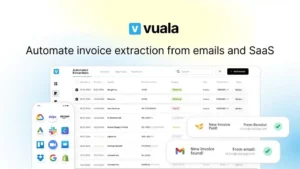Sales tracking software is a vital tool for businesses, enhancing sales efficiency, organizing customer interactions, and providing valuable insights through data analysis. By utilizing this software, companies can improve their sales processes, boost revenue, and strengthen customer relationships.
Sales tracking software is essential for any business looking to optimize its sales strategy. This innovative tool helps monitor sales activities, streamline processes, and boost overall productivity. In this article, we’ll dive deep into what sales tracking software is, its benefits, and how to choose the right one for your needs.
What is Sales Tracking Software?
Sales tracking software is a specialized tool designed to help businesses monitor and manage their sales processes effectively. It allows sales teams to track interactions with potential customers, manage leads, and analyze sales data. With this software, companies can gain insights into their sales performance, identify trends, and make informed decisions about their sales strategies.
Key Features of Sales Tracking Software
Most sales tracking software includes features such as lead management, sales forecasting, and reporting. These tools facilitate communication among team members and provide a clear picture of the sales pipeline. By automating tasks such as follow-ups and reminders, sales tracking software saves valuable time and boosts productivity.
Importance of Sales Tracking
Using sales tracking software is crucial for understanding customer behavior and sales trends. It helps businesses identify their strengths and weaknesses, allowing them to refine their strategies. Equipped with real-time data and metrics, companies can respond quickly to market changes and improve their sales approach.
Who Can Benefit from Sales Tracking Software?
This software is ideal for companies of all sizes, from startups to large enterprises. Any organization that relies on a sales team to drive revenue can benefit significantly from implementing a sales tracking solution. It supports improved collaboration, accountability, and results within sales teams.
Getting Started with Sales Tracking Software
To make the most of sales tracking software, businesses should first evaluate their specific needs. Choosing the right tool involves considering the features that will benefit their sales team the most. After selecting a software solution, team training and integration with existing processes are essential for successful adoption.
Benefits of Using Sales Tracking Software

Using sales tracking software provides numerous benefits to organizations looking to enhance their sales performance. One of the primary advantages is improved organization. This software helps sales teams manage leads efficiently, reducing the risk of losing potential customers due to oversight.
Increased Efficiency
Sales tracking tools automate many tasks, such as entering data and setting reminders for follow-ups. This automation allows sales representatives to dedicate more time to selling rather than administrative tasks. Consequently, sales teams can achieve their targets more effectively.
Better Data Insights
With sales tracking software, businesses gain access to real-time analytics. This data can reveal trends, highlight top-performing products, and show areas needing improvement. By analyzing this information, companies can make informed decisions that lead to increased revenue.
Enhanced Collaboration
Sales tracking software promotes better communication among team members. It often includes features that allow sharing updates and collaborations on leads. With improved transparency, teams can work together towards common goals more effectively.
Goal Setting and Tracking
Through the use of sales tracking software, organizations can establish clear sales goals. The software provides tools to track progress towards these goals, making it easier for teams to stay motivated and focused. Adjustments can be made as needed to ensure success.
Improved Customer Relationships
This software helps to maintain a detailed history of customer interactions. By having this information readily available, sales teams can tailor their approaches to individual customers, leading to improved relationships and higher satisfaction.
How to Choose the Right Sales Tracking Software
Choosing the right sales tracking software is crucial for your business’s success. With many options available, understanding your needs will help you make an informed decision. Here are several key considerations to keep in mind.
Assess Your Business Needs
Before looking at different software, identify your specific requirements. Consider factors like your sales process, team size, and the features you need. Knowing these details will help you narrow down your options.
Evaluate Software Features
When comparing sales tracking software, focus on essential features. Look for tools that offer lead management, reporting, and sales forecasting. A user-friendly interface is also critical to ensure your team can use the software effectively.
Check Integrations
Ensure that the software can integrate with other tools you currently use, such as your email, CRM, or marketing platforms. This compatibility will streamline your processes and reduce data entry errors.
Read Reviews and Ratings
Take the time to read user reviews and ratings. These can provide valuable insights into the software’s performance and reliability. Look for testimonials from similar businesses to see how well the software meets their needs.
Consider Your Budget
Budget is an essential factor when selecting sales tracking software. Review pricing structures carefully to determine what fits within your financial plan. Some options may offer free trials or tiered pricing based on features.
Top Sales Tracking Software Options

When selecting sales tracking software, it is helpful to explore various options available on the market. Here are some of the top choices to consider:
1. Salesforce
Salesforce is a popular option known for its extensive features and customization options. It offers tools for tracking sales, managing leads, and generating insightful reports, making it ideal for businesses of all sizes. Its robust ecosystem also allows integration with various other applications.
2. HubSpot Sales
HubSpot Sales offers a user-friendly interface and includes features like email tracking, templates, and a visual pipeline. It is perfect for teams looking for easy setup and strong support for inbound sales strategies. HubSpot provides a free tier, making it attractive for small businesses.
3. Pipedrive
Pipedrive is designed with sales teams in mind, focusing on pipeline management and activity tracking. Its simplicity allows salespeople to quickly update deals and track their progress. Pipedrive’s automation features help save time and improve efficiency.
4. Zoho CRM
Zoho CRM is a comprehensive tool that offers sales automation, performance management, and analytics. It is customizable and integrates well with other Zoho applications, making it suitable for businesses that need an all-in-one solution.
5. Microsoft Dynamics 365
Microsoft Dynamics 365 is a powerful CRM software that provides advanced analytics and reporting features. It helps manage customer relationships effectively and streamline sales processes, making it suitable for larger organizations with complex sales cycles.
Each software option has its unique strengths, so consider your specific business needs and team preferences when making your choice. Tools that best align with your processes will provide maximum benefit to your sales tracking efforts.
Real-World Success Stories with Sales Tracking Software
Real-world success stories demonstrate how sales tracking software can transform a business by enhancing efficiency and boosting sales. Here are a few noteworthy examples.
1. Company A: Improved Sales Team Efficiency
Company A, a mid-sized manufacturing firm, struggled with tracking its sales pipeline and customer interactions. After implementing a sales tracking software, the team noticed a 30% increase in efficiency. Tasks that once took hours were completed in a fraction of the time due to automation features. The management was able to use detailed reporting tools to make better decisions, which led to a significant revenue increase.
2. Company B: Enhanced Customer Relationships
A small online retail store, Company B, used sales tracking software to manage customer interactions and leads more effectively. The owner reported that having a clear view of customer history helped personalize communications and improve customer satisfaction. As a result, repeat purchases increased by 50%, demonstrating the value of enhanced customer relationships.
3. Company C: Streamlined Sales Processes
Company C, a tech startup, implemented sales tracking software and saw its sales processes streamline dramatically. The software’s integration with their CRM allowed the sales team to access crucial customer information instantly. They could follow up with prospects more efficiently, resulting in a 40% higher close rate on leads compared to the previous quarter.
4. Company D: Data-Driven Decision Making
After adopting a sales tracking solution, Company D, an international consulting firm, used data analytics to inform their strategies. By analyzing sales data trends, they identified underperforming areas and started targeted training sessions for their staff. This proactive approach increased their overall sales by 25% within six months.
5. Company E: Real-Time Adjustments
Company E, a nonprofit organization, utilized sales tracking software to monitor donations and interactions with donors. The software enabled them to see real-time data, allowing the team to adjust their fundraising campaigns quickly. Their ability to react to trends resulted in a 20% increase in fundraising performance compared to their previous efforts.
In Conclusion: Harnessing the Power of Sales Tracking Software
Sales tracking software can significantly enhance how businesses manage their sales processes. By improving organization, boosting efficiency, and strengthening customer relationships, these tools can lead to increased revenue and growth.
As seen in real-world success stories, companies that implement sales tracking solutions often see positive outcomes, such as higher close rates and better data-driven strategies. By carefully choosing the right software for your needs, you can set your sales team up for success.
Don’t underestimate the impact of effective sales tracking: it can revolutionize your approach to sales and help you achieve your business goals.
FAQ – Frequently Asked Questions about Sales Tracking Software
What is sales tracking software?
Sales tracking software is a tool that helps businesses monitor their sales processes, manage leads, and analyze sales data.
How can sales tracking software benefit my business?
It can improve organization, boost efficiency, enhance customer relationships, and provide real-time insights into sales performance.
What features should I look for in sales tracking software?
Key features to consider include lead management, reporting tools, integration capabilities, and a user-friendly interface.
Is sales tracking software suitable for small businesses?
Yes, many sales tracking solutions are designed for businesses of all sizes, including small businesses, and can help optimize sales processes.
How do I choose the right sales tracking software for my team?
Assess your specific needs, evaluate available features, check integration options, read user reviews, and consider your budget.
Can sales tracking software improve my customer relationships?
Absolutely! By providing insights into customer interactions, it enables personalized communication and helps maintain strong relationships.




